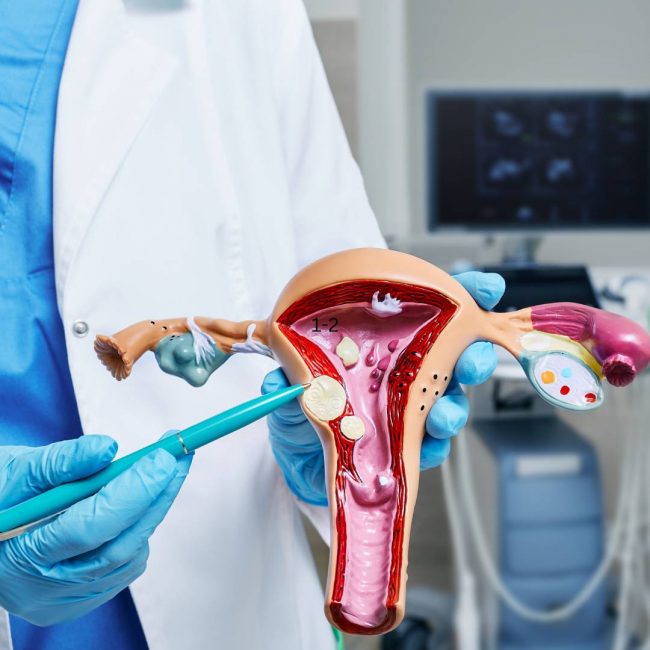If your periods are lasting longer than usual or you’ve noticed a heavier blood flow recently, fibroids might be to blame. The highly skilled and compassionate specialists at Comprehensive Women’s OB/GYN are well-known for their expertise in diagnosing and treating your gynecologic issues, including fibroids. For outstanding women’s health care that combines top-rated medical treatment with a genuine patient-first attitude, schedule a visit at Comprehensive Women’s OB/GYN today. Call the office or request your appointment online.
Uterine fibroids are abnormal growths that can occur within or on the surface of your uterus. Fibroids do not increase your risk of developing uterine cancer and rarely lead to cancer.
Uterine fibroids are made from smooth muscle cells and fibrous connective tissue. They can be very small and undetectable by the human eye, but they can grow large enough to distort the shape and size of your uterus. You may have just one or many fibroids depending on your circumstances.
Many women have uterine fibroids without developing any symptoms. Depending on their size and location, however, fibroids can cause:
Fibroids develop during your childbearing years and often become symptomatic at about age 30.
Fibroids can involve any aspect of the uterus. Intramural fibroids grow within the muscular uterine wall. Submucosal fibroids bulge into the uterine cavity. Subserosal fibroids project outward from the uterine wall. Depending on their size and location, fibroids can interfere with your ability to conceive a child or make it difficult to progress through a full-term pregnancy.
Your Comprehensive Women’s OB/GYN provider first uses ultrasound and other diagnostic studies to define the size and location of your fibroids accurately.
If your fibroids aren’t causing symptoms or problems, it’s safe to monitor their growth over time. Fibroids often shrink, and symptoms resolve once you enter menopause.
Treatments for symptomatic fibroids may include medication (oral contraceptives) to reduce menstrual bleeding during periods. A gonadotropin-releasing hormone (GnRH) agonist is a type of medication that can introduce a menopause-like state and shrink fibroids.
There are also minimally invasive surgical procedures available, such as robot-assisted myomectomy and forced ultrasound surgery (FUS), that remove fibroid tissue while sparing the uterus. Your provider discusses all aspects of potential treatment in detail before you select the best option for you and your circumstances.
Schedule a visit at Comprehensive Women’s OB/GYN today for an evaluation regarding uterine fibroids or any other gynecological issue. Call the office nearest you or book your appointment online today.
